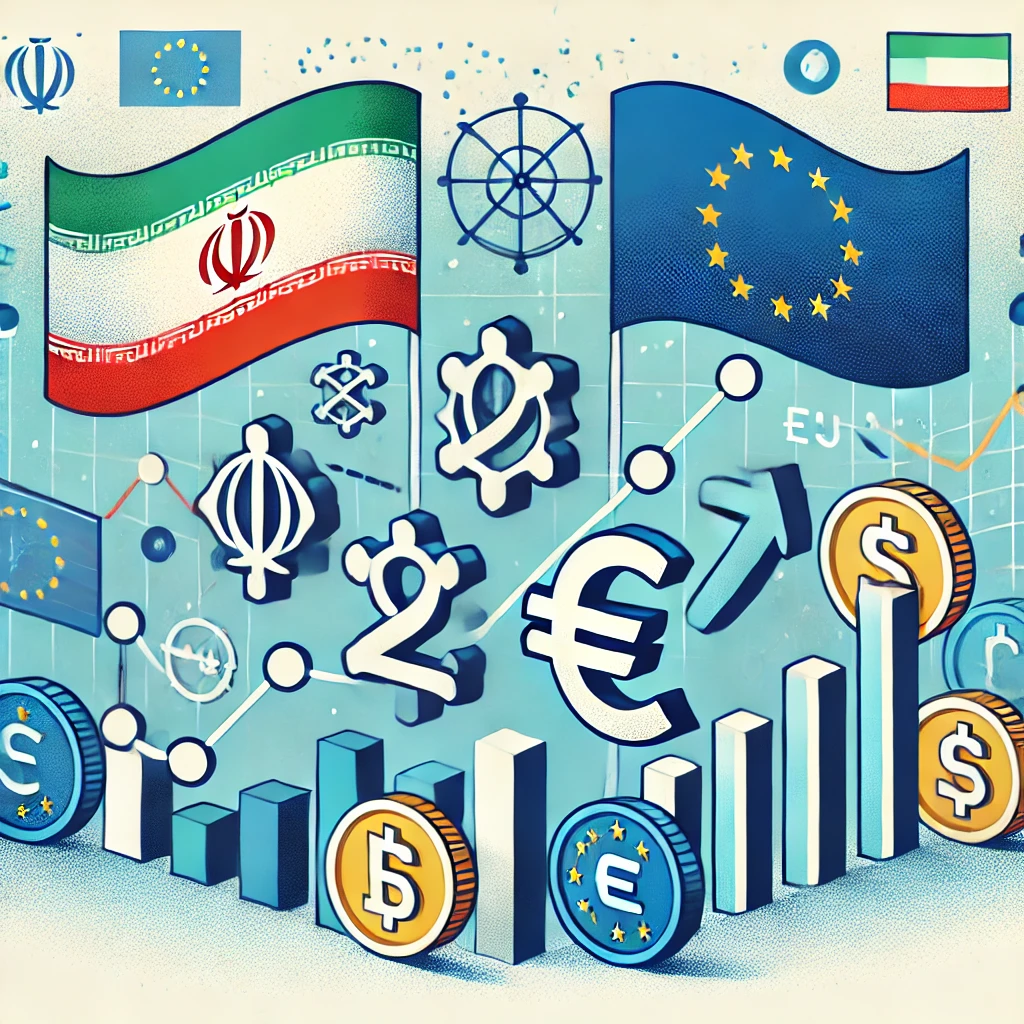As one of the basic pillars of modern economy, financial markets play a key role in facilitating capital exchange, project financing and risk management. In today’s world, where globalization and international communication have reached their peak, countries seek to establish effective financial and commercial relations with each other. Pursuing common financial markets between Iran and Europe is considered as a strategic necessity. Economic relations between Iran and Europe have existed for a long time, but political and economic developments in recent years have affected these relations. This article examines the necessity of pursuing common financial markets between Iran and Europe and will point to the existing challenges and solutions.
History of financial relations between Iran and Europe
Financial relations between Iran and Europe go back to before the Islamic Revolution. At that time, Iran was known as an attractive market for European investors. In the 1970s, Iran attracted a lot of attention due to its rich oil resources and growing market. However, after the Islamic Revolution in 1979, followed by economic sanctions, these relations were disrupted. After the nuclear deal in 2015, hopes of reviving these relations were revived. But with the withdrawal of the United States from this agreement and the return of sanctions, these relations were once again under pressure. This history shows the high potential of economic cooperation between Iran and Europe, but it also points to the existence of serious challenges.
The necessity of pursuing common financial markets
Economic development
Pursuing common financial markets can help Iran’s economic development. The creation of these markets helps to attract foreign investments and develop economic infrastructure. In addition, these collaborations can lead to the improvement of economic indicators and increase of employment in the country. Considering the current state of Iran’s economy, the need for foreign investments to develop industries and create new job opportunities is felt more than ever.
Diversity of financial resources
The existence of common financial markets allows Iran to take advantage of diverse and new financial sources. This diversity can help reduce dependence on domestic sources and reduce economic risks. For example, the entry of European investors can lead to the creation of new financial institutions and the development of innovative financial instruments, which will help to increase the efficiency of financial markets in Iran.
Attracting foreign investment
European investments can improve Iran’s economic situation and create new job opportunities. Creating joint financial institutions and facilitating business processes can help attract these funds. Also, creating economic and commercial cooperation agreements can help to increase trust between investors and facilitate the entry of foreign capital into Iran.
Risk management
Common financial markets can help manage economic risks. By creating a common platform, countries can cooperate and use each other’s experiences. These collaborations can lead to greater transparency in financial markets and reduce investment-related risks. In addition, establishing common regulatory systems can help improve the quality and security of financial markets.
Challenges and obstacles
Sanctions
One of the biggest obstacles in the way of financial cooperation between Iran and Europe is international sanctions. These sanctions prevent the attraction of foreign investments and the development of financial relations. In addition, sanctions increase the risk of investing in Iran and prevent investors from entering the Iranian market.
Political differences
Political differences between Iran and European countries can also hinder progress in this field. To create common financial markets, a suitable and stable political environment is needed. Political tensions and disputes in the field of human rights and nuclear programs can lead to a decrease in trust and cooperation in economic fields.
Legal settings
The existence of different laws and regulations in each country can lead to the complications of creating common markets. The need to create a common legal framework to facilitate financial cooperation is felt. Also, there is a need for cooperation in regulatory and proprietary areas to ensure that investors operate in a safe and transparent environment.
Suggestions and solutions
- To improve the financial cooperation between Iran and Europe, the following suggestions can be made:
- Establishing financial and commercial cooperation agreements: these agreements can help reduce barriers and facilitate business operations.
- Establishing joint financial institutions: forming institutions that can act as intermediaries between Iranian and European investors and facilitate financial processes.
- Holding joint conferences and seminars: these events can provide a space for the exchange of opinions and experiences between the economic activists of the two sides.
- Development of educational programs: training of economic actors in financial and commercial fields can help to improve the knowledge and skills necessary to operate in common markets.
conclusion
Pursuing common financial markets between Iran and Europe as a strategic necessity can lead to economic development, attracting foreign investment and managing economic risks. Despite the existing challenges and obstacles, the need to try to improve these relations and create a suitable platform for financial cooperation is felt. The cooperation and consensus of both sides can lead to the creation of a bright and fruitful future in financial relations between Iran and Europe. By taking advantage of existing potentials and removing obstacles, we can hope to achieve economic goals and sustainable development in this field.


